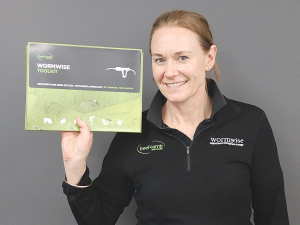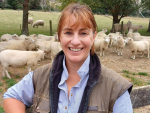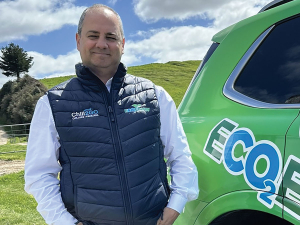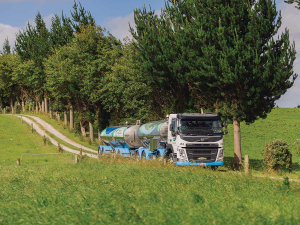Everyone from experienced veterinarians and young professionals to the Wormwise programme and outstanding clinics have been recognised in this year’s New Zealand Veterinary Association (NZVA) awards. As part of a series looking at this year’s rural winners, Leo Argent talked with Ginny Dodunski, winner of the Veterinary Impact Award for raising the profile of the Wormwise programme.
How did you get started at Wormwise?
I studied veterinary science at Massey then started in rural practice in Feilding where I was lucky to start with Trevor Cook. He worked in the advisory space with sheep and beef for a long time so having him as a mentor was awesome.
I then went away for a couple of years and spent part of that time working in Australia which at the time was dealing with big drench resistance problems in sheep.
I could see they were maybe 15 years or so ahead of us and that we were going to face the same issues.
So, when I came back, I was very hot on trying to get our farmers to do more testing. I guess I just got involved in a lot of extension and advisory work off the back of that.
How did Wormwise start off and where did you come in?
In the early 2000’s there was a big national survey looking at drench resistance and we saw some results that were quite scary. People thought we didn’t have much drench resistance at all, but really it was quite prevalent.
I’ve been a Wormwise trainer since they started doing workshops in the mid 2000’s and have been managing the programme since May 2022.
What was Wormwise's public awareness level at before you came along?
Wormwise was funded by MPI and BLNZ to be a source of information for farmers to more sustainably manage worms on their properties. But the outputs were a very basic website, a handful of fact sheets and workshops, so it probably didn’t have the impact that it could have.
There was a review of Wormwise back in 2021 and the feedback from farmers was very much ‘you need to ramp this right up’. It was agreed it needed a manager so I applied for the role and got it.
If we look at our social media Wormwise had about 300 followers when I started and now it’s 2600 followers. It’s quite small next to Michael Jordan, but it’s a significant increase and certainly among beef and sheep farmers in particular it’s quite well known.
What did you do to raise Wormwise's awareness amongst the farming public?
The main thing was just getting out directly to farmers on social media. A lot of the early stuff I put out was videos about common questions regarding worm management.
We’ve done lots of regular rural media articles but if you don’t see it, you’ve missed it. Those social media videos hang around, people replay them and share them. I think that in terms of awareness among the farmers that has been the big thing.
Are there any future plans for Wormwise?
I’ve had this raised with me enough times that it would be neat if we could do more with lifestyle blockers, but the funding comes from commercial farm levies so that’s where we direct the energy at the moment.
That being said, lifestyle blockers can sign up to their local BLNZ E-Diary so they know which workshops are on and then come along.
What would you say is the biggest worm and parasite related challenge currently facing New Zealand producers?
Accepting that worm management is a whole farm system issue as parasites grow more resistant and the drenches we use become less effective.
We’ve got to look at all the ways we can manage worms within the farm system; feeding, rotations, when we market stock what percentage of young stock we carry etc.
“The challenge is for farmers to step back and look at their system, how they can run that in a way that makes worms less of a challenge. At a farm system level, it’s quite a lot of thinking and rethinking.
What are some common misconceptions people have about worms and other parasites?
There was a Massey Research study showing that only 14% of skinny ewes in poor body condition were skinny because of parasites. In a big mob, there are individuals that don’t compete as well and that’s actually the main cause of ewe’s being light.
If there are animals that aren’t coping put them in a smaller group with more to eat and they don’t need drench to put weight back on.
Is there anyone in particular you'd like to shout out to having won this award (as in thank)?
The reason I won this award is not so much the work I’ve done with farmers but the work we’ve done helping vets with worm management info. We’ve set up a number of initiatives to help vets and the enthusiasm with which they’ve embraced that I feel we’ve made a real difference.
Whenever we survey farmers, when it comes to drench, worms and animal health they want to get that info from their vet, so it’s really it’s really important that the vets are giving a consistent message.



















